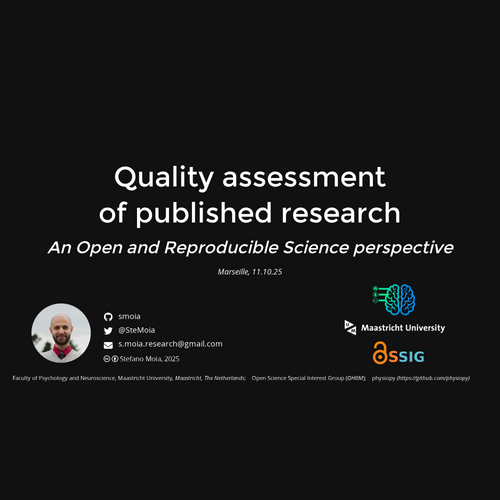Reproducibility crisis
Or: the many facets of a scientific crisis that forced us to rethink the way we do science

| smoia | |
| @SteMoia | |
| s.moia.research@gmail.com |

Lausanne, 11.09.23


(Formerly) EPFL, Lausanne, Switzerland, and UniGE, Geneva, Switzerland; physiopy (https://github.com/physiopy)

Reproducibility crisis
Or: the many facets of a scientific crisis that forced us to rethink the way we do science
Lausanne, 11.09.23



Disclaimers
1. I am an "open" scientist. I have a bias toward the
core tenets of Open Science as better practices.
2. My background is psychology, I am a methodologist
and neuroscientist specialised in neuroimaging.
While most examples come from my field, the
concepts are cross-disciplinary,
3. It's easy to take the higher moral ground - don't.
I won't judge if you did something I'll talk about.
I'm here to raise awareness of an issue. Speak
about it freely, we're here to learn from it.



0. Rules & Materials



You're asking questions,
I'm doing that too!
This is a new chapter
Take home #0
This is a take home message
1. Terminology



Replicable, Robust, Reproducible, Generalisable

The Turing Way Community, & Scriberia, 2022 (Zenodo). Illustrations from The Turing Way (CC-BY 4.0)
Guaranteeing reproducibility is important for "reusable, transparent" research.



1
2
3
4
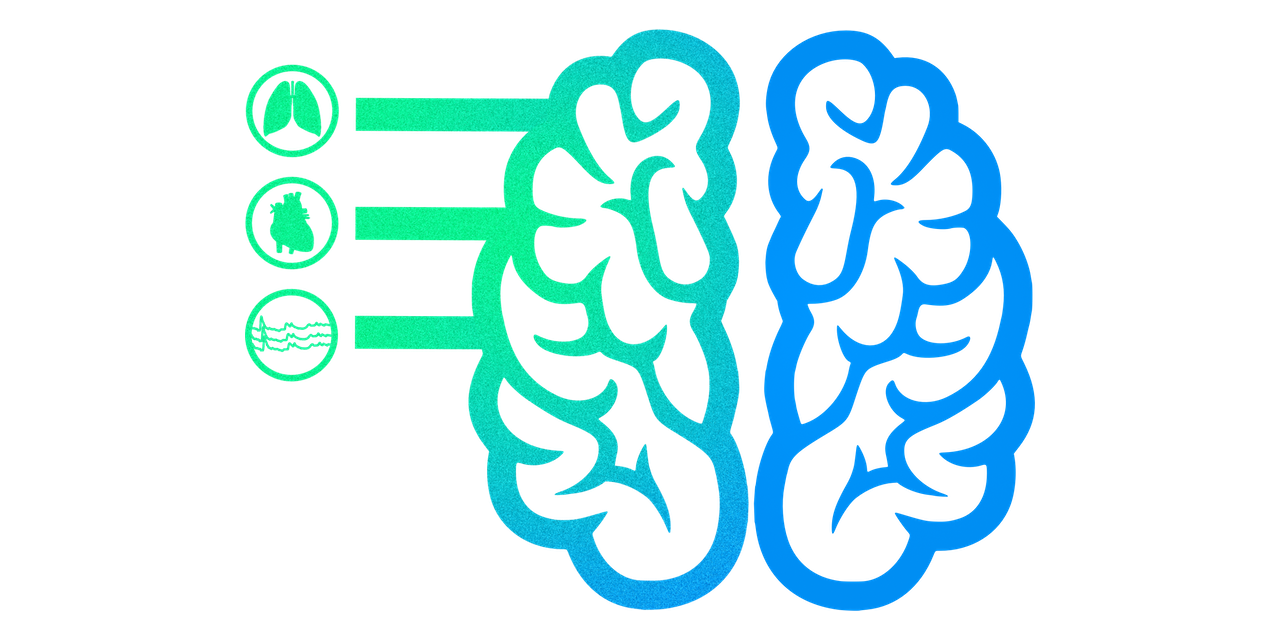
2. Reproducibility crisis



Where does it come from?
2005: "metascience" gets its name



2010s:
- Failed attempts to reproduce core concepts of social psychology and biomedical research
- Studies on p-hacking and questionable research practices
2016: Survey by Nature¹: 70% of researchers failed to reproduce other's results, 50%+ failed to reproduce their own
1. Baker 2016 (Nature)
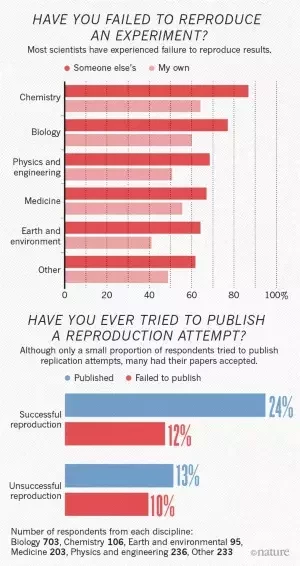
Causes of "ir-reproducibility"
- Unavailable data / code / materials
- Lack of sufficient information / procedures
- Human mistakes / bugs
- "Novelty over reproducibility" culture
- Different analysis environments (OS / libraries / versions)
- Fraud



Really reproducible?
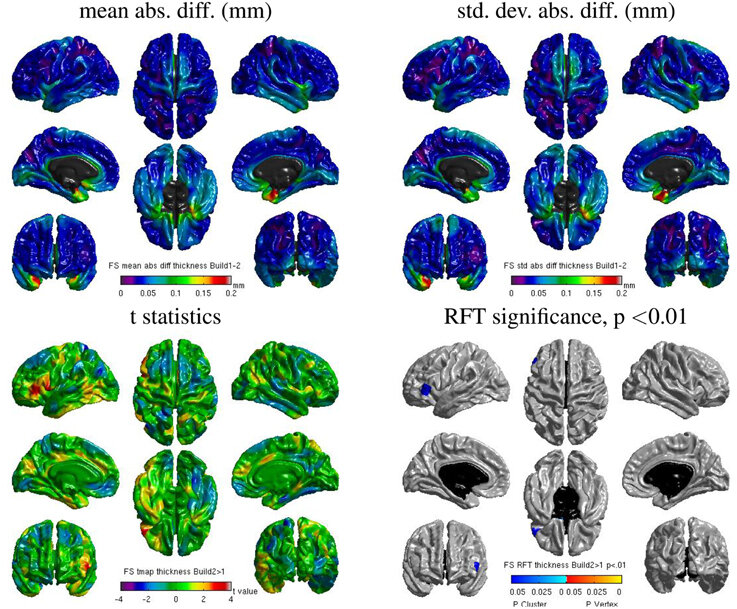
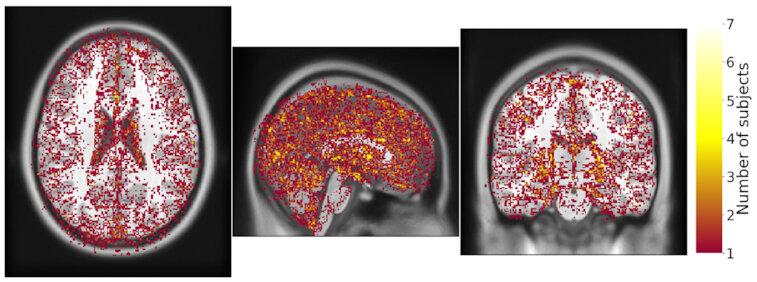
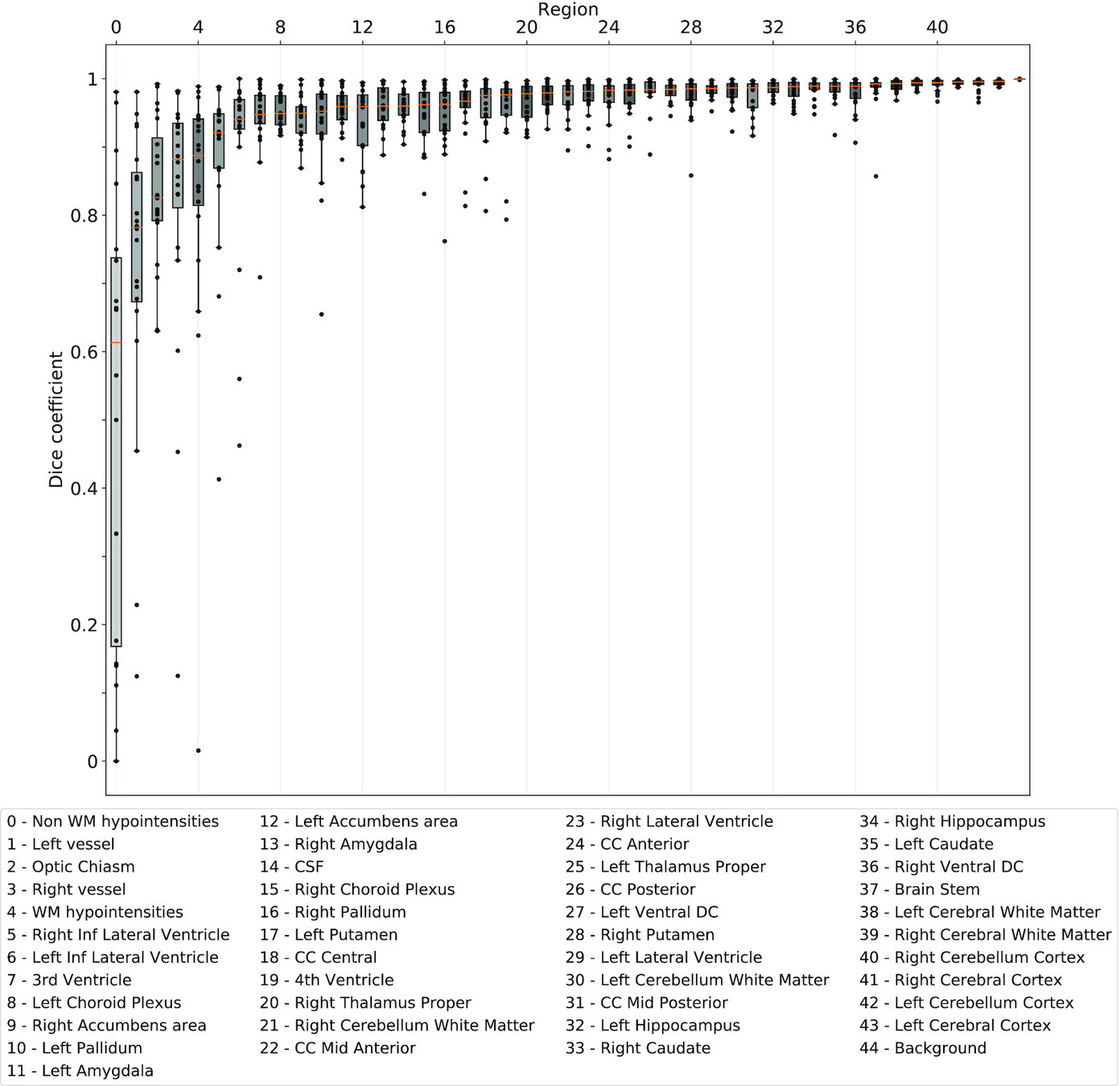
Same hardware, two Freesurfer builds (different glibc version)
Difference in estimated cortical tickness.¹
Same hardware, same FSL version, two glibc versions
Difference in estimated tissue segmentation.²
Same hardware, two Freesurfer builds (two glibc versions)
Difference in estimated parcellation.²
1. Glatard, et al., 2015 (Front. Neuroinform.) 2. Ali, et al., 2021 (Gigascience)




Really reproducible?



Same hardware, two Freesurfer builds (different glibc version)
Difference in estimated cortical tickness.¹
Same hardware, same FSL version, two glibc versions
Difference in estimated tissue segmentation.²
Same hardware, two Freesurfer builds (two glibc versions)
Difference in estimated parcellation.²
1. Glatard, et al., 2015 (Front. Neuroinform.) 2. Ali, et al., 2021 (Gigascience) 3. Muller (YouTube, Veritasium)
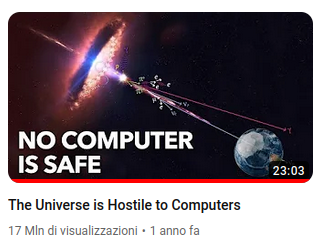



Reproducibility crisis
Or: the many facets of a scientific crisis that forced us to rethink the way we do science

| smoia | |
| @SteMoia | |
| s.moia.research@gmail.com |

Lausanne, 11.09.23


(Formerly) EPFL, Lausanne, Switzerland, and UniGE, Geneva, Switzerland; physiopy (https://github.com/physiopy)

Reproducibility crisis
Or: the many facets of a scientific crisis that forced us to rethink the way we do science

| smoia | |
| @SteMoia | |
| s.moia.research@gmail.com |

Lausanne, 11.09.23


(Formerly) EPFL, Lausanne, Switzerland, and UniGE, Geneva, Switzerland; physiopy (https://github.com/physiopy)
Replicability/Robustness/Generalisation crisis

3. Robustness and replicability crisis



Really Robust?

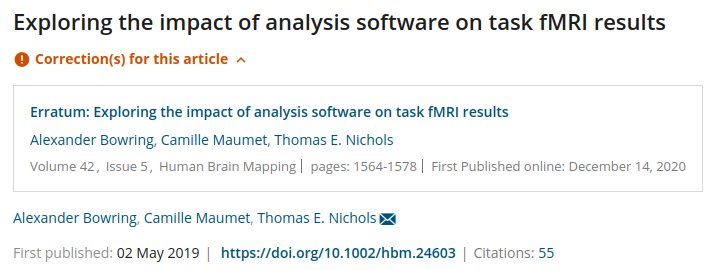
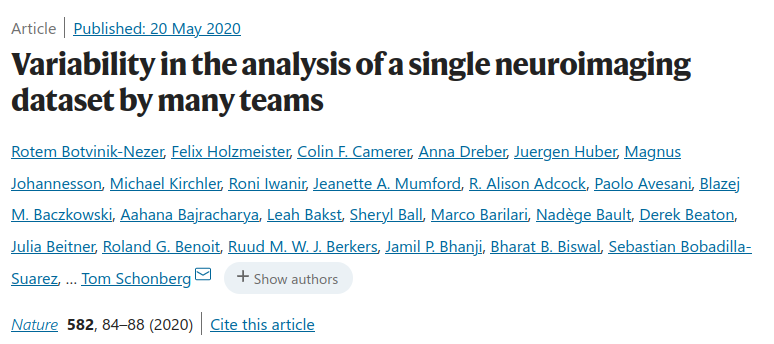





Causes of "un-robustness"
- Different (valid) algorithmic implementations
- "Researchers degrees of freedom"
- Lack of "real underlying truth"
- Bias towards "positive" methods



Causes of "ir-replicability"



- Unclear statistical heterogeneity
- Lack of power analyses
- Insufficient data collection
- Data dredging / selection
- Bias towards "positive" results
4. Generalisation crisis



The mass extintion level issue



Aarts et al. 2015 (Science)
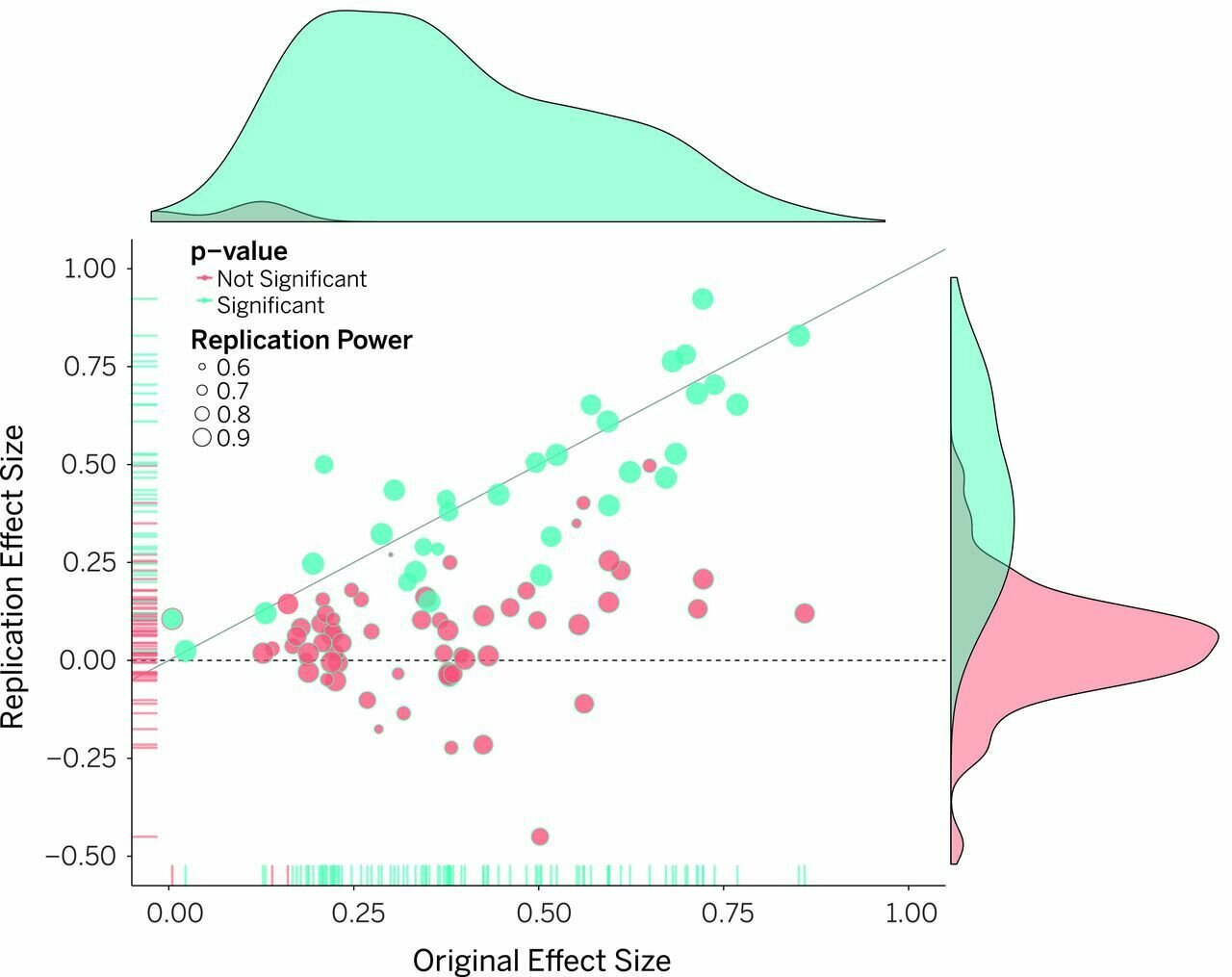

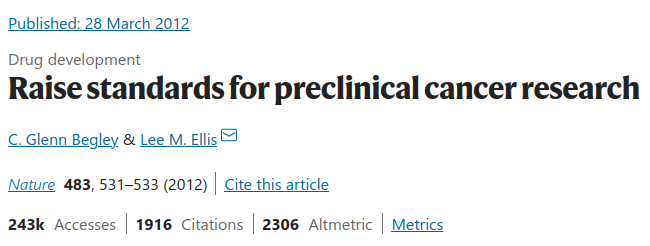
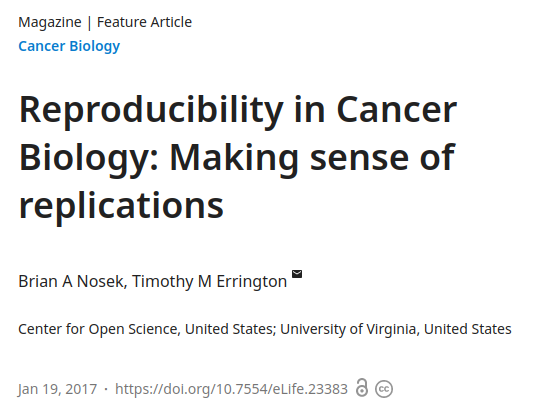
What does failure to generalise tell us about hypotheses and scientific facts?

5. Procedural crisis



Procedural crisis
- Persons first, communities after
- Objective = not-human
- "Exploratory" = lack of procedures
- Hypotheses driven by results (HARKing)



6. Professional and systemic crisis



Professional and systemic crisis
- Lack of resources = Competition
- "Publish or perish" culture of academia
- "Null results" rejection → Bias toward "positive results"
- P-hacking, data dredging, data fishing, HARKing, ...



7. What are the risks?



The risks of non-replicable science



The risks
of non-replicable science
- Erratum
- Retraction
- Misinformation
- Public trust
- Impact



-
Erratum
Retraction

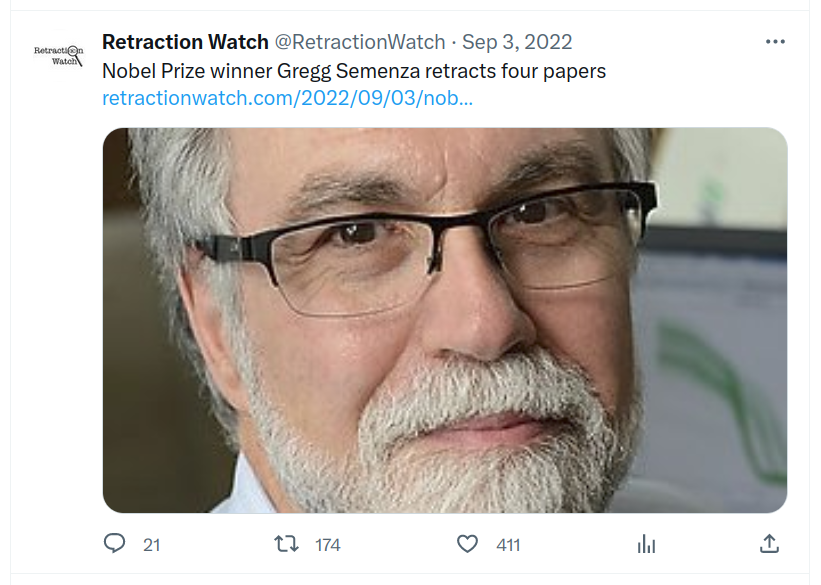
We are retracting this article due to concerns with Figure 5. In Figure 5A, there is a concern that the first and second lanes of the HIF-2α panel show the same data, [...], despite all being labeled as unique data. [...] We believe that the overall conclusions of the paper remain valid, but we are retracting the work due to these underlying concerns about the figure. Confirmatory experimentation has now been performed and the results can be found in a preprint article posted on bioRxiv [...]

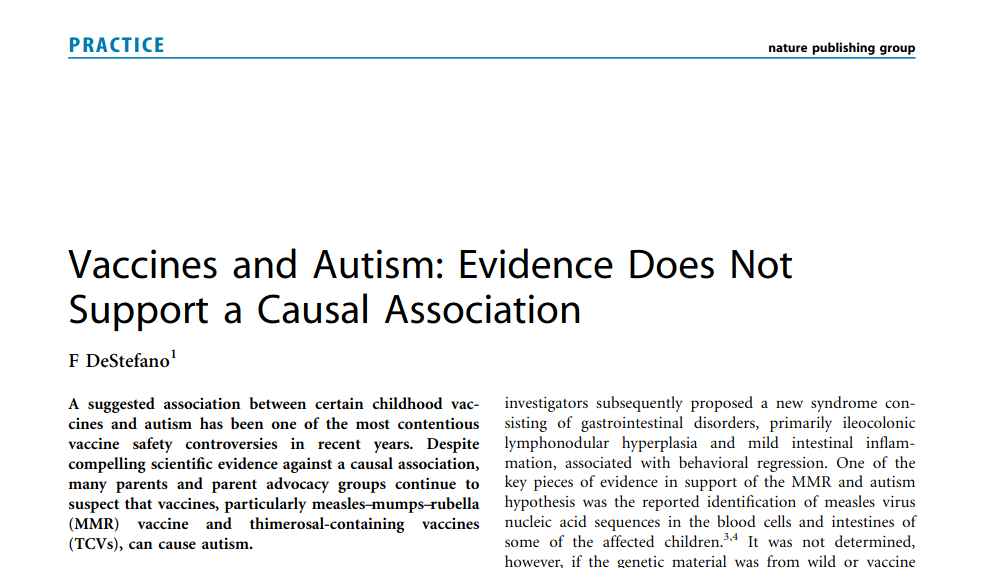



8. What are the solutions?



The solutions against non-replicable science
Take home #1: replication
Be clear in reporting your methods,
share your protocols, use metadata!
Share your data, code, and environment
Plan your study towards sharing
Insert an element of replication
or generalisation in your studies



Take home #2: robustness
Don't reinvent the wheel:
find what is available to use,
contribute to open software
Join / follow scientific communities
Disclaim your choices, go "multiverse"



Take home #3: replication
If you can't match a power analysis, piggyback on other datasets
If you can't run it, read the literature,
do meta-analyses
Plan a power analysis



Take home #4: procedure
Plan alternative/concurrent hypotheses, plan a "risk factor analysis"
Pre-register or, even better,
plan and submit a registered report
Remember we are humans:
disclaim your biases



Take home #5: system
Publish all results, either alone (arXiv!)
or as a part of a bigger picture
Put the science first, put yourself second
Bring back to your lab what you learn this week



The solutions against non-replicable science
Last take home message:
What you do in your scientific work has an impact on society.
It's not about you.
Remember that.



Thanks to...
...the MIP:Lab @ EPFL
...you for the (sustained) attention!
That's all folks!
...the organisers, for having me here
...the Physiopy contributors




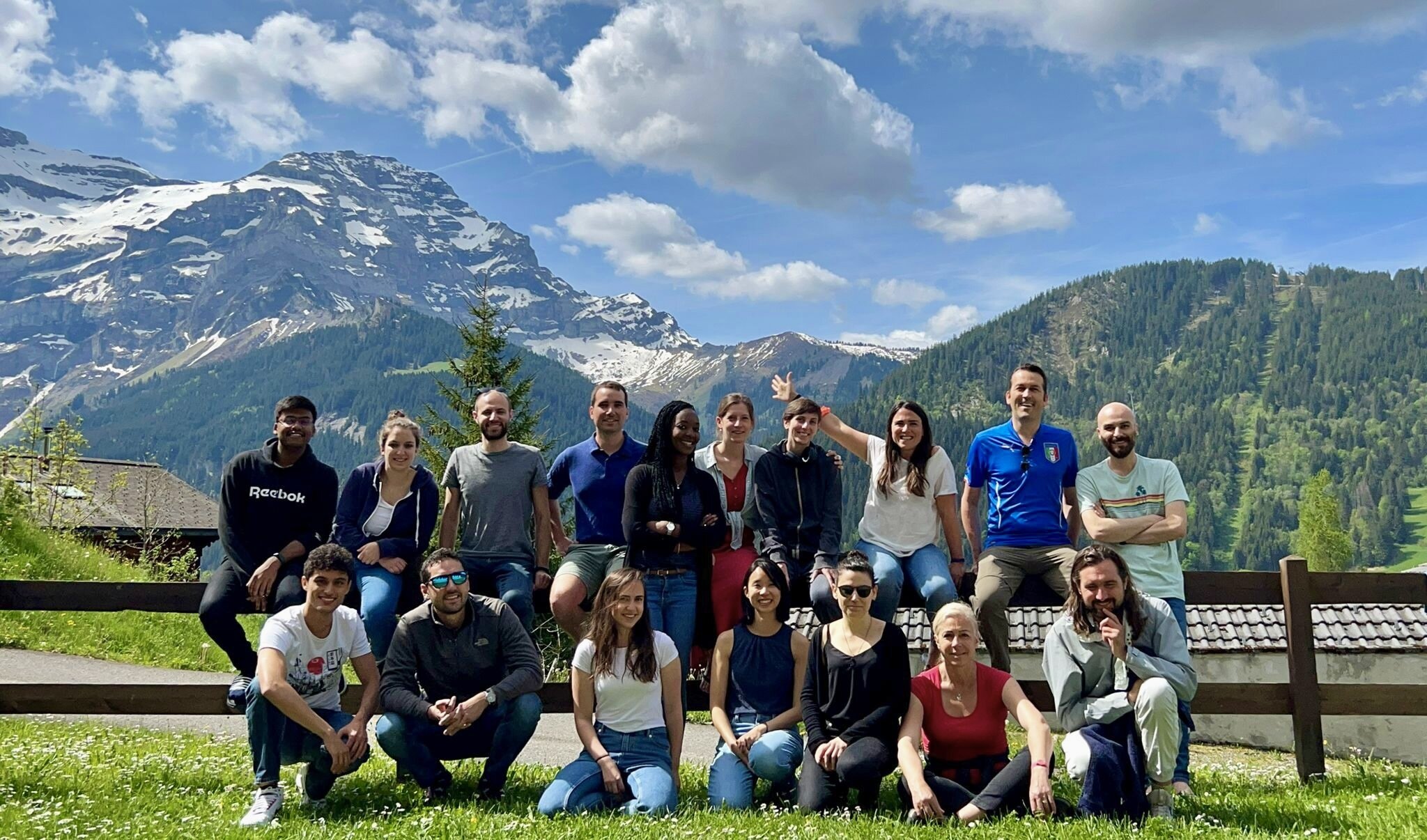


| smoia | |
| @SteMoia | |
| s.moia.research@gmail.com |
Reproducibility Crisis [ORPER 2023]
By Stefano Moia
Reproducibility Crisis [ORPER 2023]
CC-BY 4.0 Stefano Moia, 2023. Images are property of the original authors and should be shared following their respective licences. This presentation is otherwise licensed under CC BY 4.0. To view a copy of this license, visit https://creativecommons.org/licenses/by/4.0/
- 311

